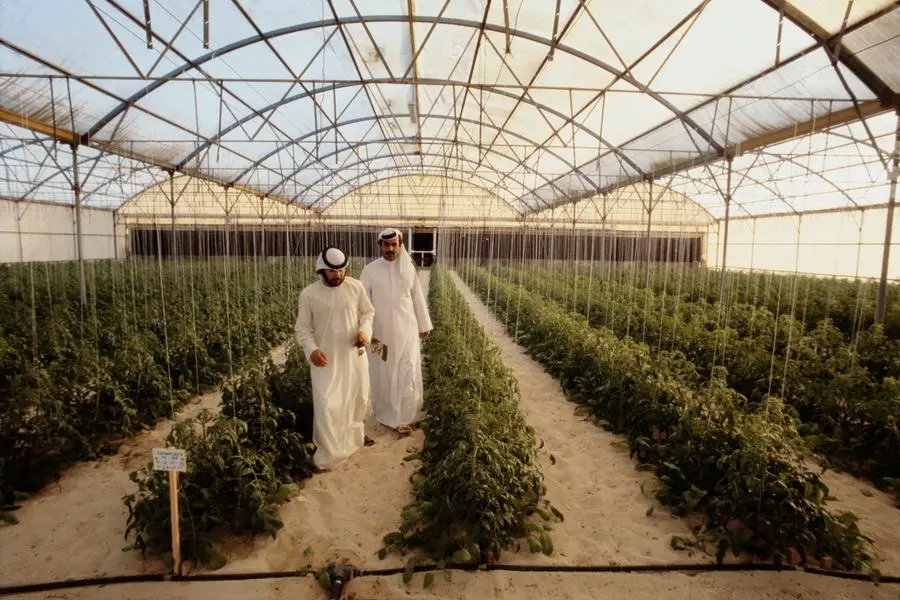The United Arab Emirates (UAE) has taken a major step towards ensuring food security and environmental sustainability by launching a new national program to promote sustainable agriculture practices. This initiative is aimed at transforming the country’s agricultural sector by introducing modern techniques, reducing water consumption, and encouraging eco-friendly farming methods.
A New Era for Agriculture in the UAE
Agriculture in the UAE has always faced challenges due to the country’s arid climate and limited natural water resources. However, with the new program, the government aims to make farming more efficient and environmentally friendly. By adopting innovative technology and sustainable practices, farmers will be able to increase production while reducing their impact on nature.
Key Objectives of the Program

The newly launched initiative focuses on several key goals:

- Water Conservation: Encouraging the use of modern irrigation systems to minimize water wastage.
- Smart Farming Technologies: Promoting the use of AI, drones, and data analysis to improve crop yield.
- Soil Health Improvement: Implementing organic farming techniques to enhance soil fertility.
- Sustainable Livestock Farming: Encouraging responsible livestock management to reduce environmental impact.
- Support for Farmers: Providing financial and technical assistance to farmers adopting sustainable methods.
Government’s Role and Vision
The UAE government has been actively working towards achieving food security while reducing the country’s dependence on food imports. This program aligns with the UAE’s vision to become a global leader in sustainable farming. The Ministry of Climate Change and Environment (MOCCAE) has partnered with research institutions, agricultural companies, and international organizations to implement best practices in the sector.
Dr. Amna Al Shamsi, a senior official at MOCCAE, stated, “Sustainability is the future of agriculture. Through this program, we are not only ensuring food security but also protecting our environment for future generations.”

Advanced Farming Techniques to Be Introduced
The initiative will introduce advanced farming techniques, including hydroponics, vertical farming, and aquaponics. These methods use significantly less water than traditional farming and allow crops to grow in controlled environments, making them ideal for the UAE’s harsh climate.
Hydroponic farms, for example, use nutrient-rich water instead of soil, reducing water usage by up to 90%. Vertical farming allows crops to grow in stacked layers, maximizing space and increasing production. Aquaponics combines fish farming with plant cultivation, creating a self-sustaining ecosystem.
Benefits for Farmers and the Economy
Farmers in the UAE will receive training and resources to help them transition to sustainable farming. The government plans to provide financial support, subsidies, and incentives for those adopting eco-friendly practices. This move is expected to not only boost local food production but also create new job opportunities in the agricultural sector.
Additionally, the program aims to attract investments in the agri-tech industry, positioning the UAE as a hub for innovation in sustainable farming. By increasing local production, the country can also reduce its reliance on imported food, making prices more stable for consumers.
The Environmental Impact
Sustainable agriculture helps reduce carbon emissions, conserves water, and minimizes soil degradation. By implementing these eco-friendly farming techniques, the UAE aims to lower its overall environmental footprint. The program also aligns with the country’s broader sustainability goals, such as achieving net-zero carbon emissions by 2050.
Looking Ahead
The UAE’s national program for sustainable agriculture marks a significant milestone in the country’s journey toward a greener and more self-sufficient future. With strong government support, technological advancements, and farmer participation, the initiative is set to revolutionize the agricultural sector.
As the UAE continues to innovate in farming, the rest of the world is watching closely. The success of this initiative could serve as a model for other nations facing similar agricultural challenges, proving that sustainability and food security can go hand in hand.
With these efforts, the UAE is not just securing its own future but also contributing to global sustainability in agriculture. The program is expected to bring long-term benefits, ensuring a more resilient food system for generations to come.
Also read: UAE’s Cultural Wonderland: Saadiyat District Set to Dazzle by 2025!














